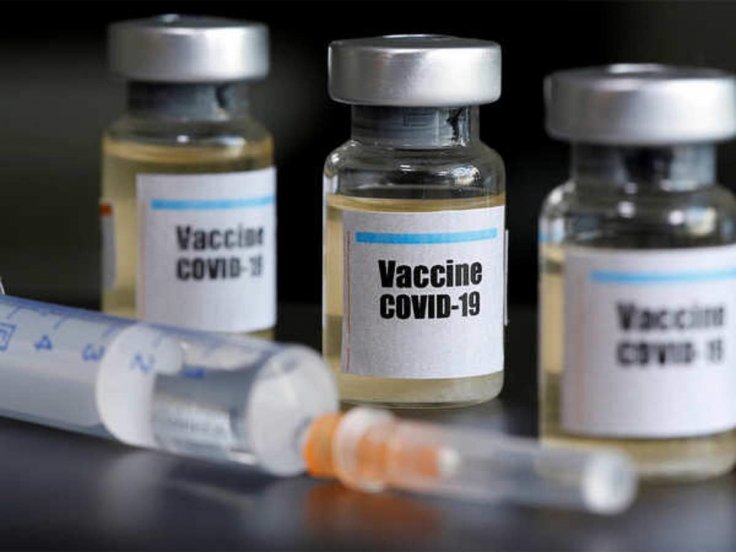The world has recorded over 40 million novel Coronavirus cases and more than 1,119,000 deaths related to COVID-19 as of Tuesday, October 20. Millions of people from all around the globe are now eagerly waiting for one thing—a vaccine for this SARS-CoV-2 caused disease.
But there are still doubts about whether any of these vaccines would work or not. A report published in The Lancet said the World Health Organization (WHO) has recommended that "successful vaccines should show disease risk reduction of at least 50 percent, with 95 percent CI that true vaccine efficacy exceeds 30 percent". But the impact of these vaccines on Coronavirus infection and thus transmission "is not being assessed," it added.
Like experts, many people believe that vaccines developed by Moderna, Pfizer, AstraZeneca, and Johnson & Johnson are the best hopes at this moment to win the battle against the Coronavirus pandemic. But all of them have reported side-effects during the trial period. Even two of them—AstraZeneca and Johnson & Johnson—had to pause the trial program in the US after participants developed an illness that worried healthcare regulators.

Many people got frightened after reading news about the issues with the vaccines, while some used their imagination to create conspiracy and spread it online make the situation more complicated, or to increase the numbers of anti-vaxxers. Some of these conspiracies became quite popular on online platforms — that vaccines can change your DNA and Oxford vaccine will turn humans into monkeys.
However, the US Food and Drug Administration (FDA) will still pass some of these vaccines—as long as the side effects are mild and temporary. So, here is the list of the vaccines and details about the side-effects.
Moderna
A 44-year-old volunteer in Moderna's phase 3 trial, Luke Hutchison said that he developed a mild fever after taking the first shot of the mRNA-1273 vaccine. In a Tweet, he also explained that 12 hours after the second shot he noticed "full-on COVID-like symptoms".
As reported, there were other participants who also experienced similar side-effects after taking the potential Coronavirus vaccine. Even though others declined to go on record, Hutchinson said he wanted to reveal the details as he was concerned that the vaccine developer might not fully inform the public about the potential side-effects of the vaccine.
Pfizer
As per a report, some of the volunteers in Pfizer's late-stage trials had developed mild side effects after getting the first shot of the vaccine, while some reported side-effects after taking the second jab. A few participants from the younger group of volunteers reported redness and swelling at the site where they received the injection.
The American multinational pharmaceutical company said in a report published in The New England Journal of Medicine that systemic events—such as fatigue, headache, muscle pain, joint paint, and chills—were reported in small numbers of younger recipients who received the second shot of the vaccine. But the company clearly said "no severe systemic events were reported by older recipients of this vaccine candidate."
AstraZeneca
The British-Swedish multinational pharmaceutical company collaborated with the University of Oxford to develop one of the most promising vaccines against the Coronavirus infection. But during the phase 3 trial, at least two participants experienced transverse myelitis, which is an inflammatory syndrome that affects the spinal cord.
The company then paused the testing, all around the world last month. Later, on September 11, AstraZeneca published a report in which the company noted that there was not enough evidence "to say for certain that the illnesses were or were not related to the vaccine." However, the company resumed phase 3 trials in the UK, South Africa, Brazil, and India, but not in the US.
Johnson & Johnson
It was last week Johnson & Johnson paused its phase 3 trial. As per the reports, the trial was stopped after a volunteer experienced unexplained illness after taking the injection. Even though the company repeatedly claimed that they are committed to transparency, the company and FDA have not yet revealed crucial details one week after the COVID-19 vaccine trial went on pause.
As per the company, it cannot disclose the details due to a privacy agreement with the participant. At this point, it is unclear whether the volunteer was in the actual vaccine group or in the placebo group.
However, Johnson & Johnson said in a statement, "The participant's illness is being reviewed and evaluated by the ENSEMBLE independent Data Safety Monitoring Board (DSMB) as well as our internal clinical and safety physicians. Adverse events — illnesses, accidents, etc. — even those that are serious, are an expected part of any clinical study, especially large studies."









